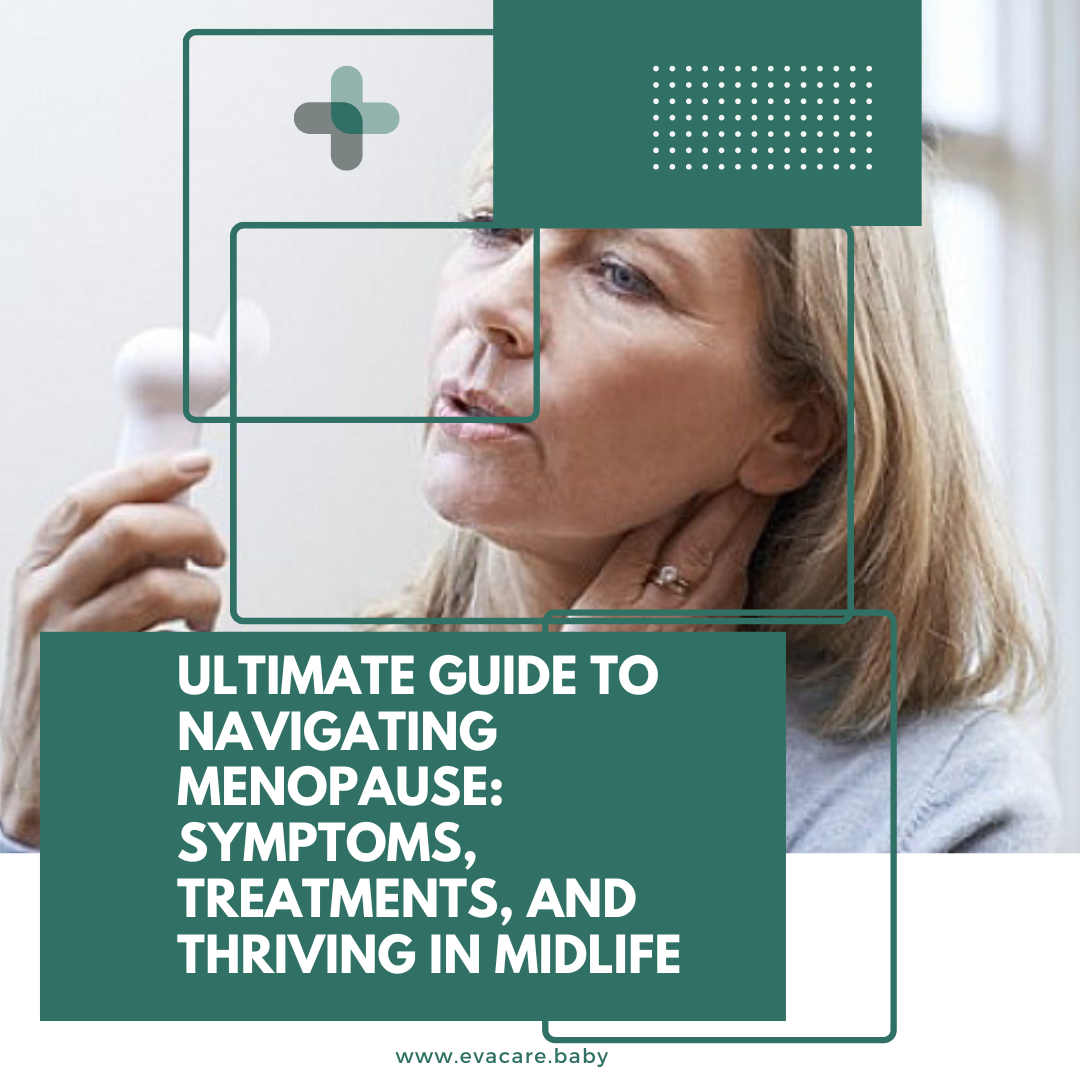Introduction
Menopause is a natural phase in a woman’s life, marking the end of her reproductive years. This transition can bring a range of symptoms and emotional changes, but it is also an opportunity for growth and renewal. Understanding menopause and how to manage its symptoms can help you navigate this phase with confidence and embrace the new possibilities it brings. This ultimate guide will explore the symptoms, treatments, and tips for thriving in midlife.
What is Menopause?
Menopause typically occurs between the ages of 45 and 55, with the average age being 51. It is defined as the time when a woman has not had a menstrual period for 12 consecutive months. The years leading up to this point, known as perimenopause, are characterized by fluctuating hormone levels and various symptoms.
Symptoms of Menopause
The symptoms of menopause can vary widely among women, but common ones include:
- Hot Flashes and Night Sweats
- Sudden feelings of heat, often accompanied by sweating and a red, flushed face, are known as hot flashes. When they occur at night, they are referred to as night sweats.
- Irregular Periods
- Periods may become irregular before they stop completely. They may be shorter or longer, heavier or lighter, and the time between periods may vary.
- Vaginal Dryness and Discomfort
- Reduced estrogen levels can cause vaginal dryness, itching, and discomfort during intercourse.
- Mood Changes
- Hormonal fluctuations can lead to mood swings, irritability, anxiety, and depression.
- Sleep Problems
- Many women experience insomnia or disrupted sleep patterns during menopause.
- Weight Gain and Slowed Metabolism
- Changes in hormone levels can lead to weight gain, especially around the abdomen.
- Thinning Hair and Dry Skin
- Hair may become thinner, and skin may lose some elasticity and moisture.
- Loss of Breast Fullness
- Some women notice changes in breast size or shape.
Treatments for Menopause Symptoms
Managing menopause symptoms can improve your quality of life during this transition. Treatments include lifestyle changes, medications, and alternative therapies.
- Hormone Replacement Therapy (HRT)
- HRT can be effective in relieving hot flashes, night sweats, vaginal dryness, and other symptoms. It involves taking estrogen or a combination of estrogen and progesterone.
- Non-Hormonal Medications
- Antidepressants, blood pressure medications, and other drugs can help manage hot flashes and mood changes.
- Vaginal Estrogen
- Low-dose vaginal estrogen, available as creams, tablets, or rings, can relieve vaginal dryness and discomfort.
- Lifestyle Changes
- Regular Exercise: Aim for at least 150 minutes of moderate aerobic activity or 75 minutes of vigorous activity per week, along with strength training exercises.
- Healthy Diet: Focus on a balanced diet rich in fruits, vegetables, whole grains, lean proteins, and healthy fats. Ensure adequate calcium and vitamin D intake for bone health.
- Adequate Sleep: Maintain a regular sleep schedule and create a restful sleep environment.
- Stress Management: Practice stress-reducing techniques such as yoga, meditation, or deep-breathing exercises.
- Alternative Therapies
- Acupuncture, herbal supplements, and other complementary therapies may provide relief for some women. Always consult with a healthcare provider before starting any alternative treatments.
- Mental Health Support
- Therapy or counseling can be beneficial for managing mood swings, anxiety, and depression.
Tips for Thriving in Midlife
- Embrace Change
- View menopause as an opportunity for personal growth and self-discovery. Embrace the changes and focus on the positives.
- Stay Connected
- Maintain strong social connections with family, friends, and community groups. Social support can enhance emotional well-being and provide a sense of belonging.
- Pursue Hobbies and Interests
- Engage in activities that bring you joy and fulfillment. Whether it’s a new hobby, travel, or volunteering, pursuing your interests can boost your mood and energy.
- Focus on Self-Care
- Prioritize self-care routines that nurture your body and mind. Regular exercise, healthy eating, and mindfulness practices can enhance your overall well-being.
- Seek Professional Guidance
- Regular check-ups with your healthcare provider are essential for managing health concerns and staying informed about the latest treatments and recommendations.
- Educate Yourself
- Learn as much as you can about menopause and the changes it brings. Knowledge empowers you to make informed decisions about your health and well-being.
Conclusion
Menopause is a significant life transition, but with the right knowledge and tools, you can navigate it successfully and thrive in midlife. By understanding the symptoms, exploring treatment options, and focusing on self-care, you can embrace this new phase of life with confidence and positivity.
For more information and support on navigating menopause, visit our blog at Evacare Baby. We provide resources and insights to help you through this phase of life with grace and resilience.

Leave a Reply